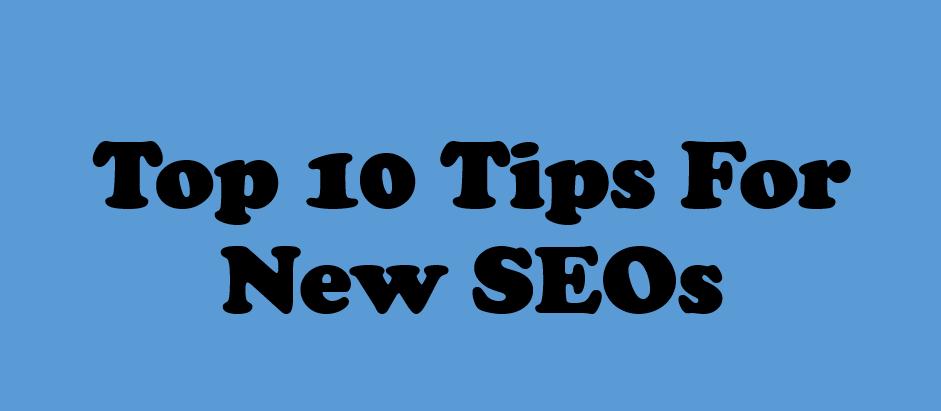I love SEO for many reasons. It’s a fast moving, exciting profession and one I feel really fortunate to be in. I often see people asking online, “how do I become an SEO?” and below are some thoughts from me.
Tip #1 – Learn how to effectively communicate
It may surprise you that my first tip isn’t about how to ‘do SEO’. The reason I’ve chosen communication is because to be truly effective as an SEO specialist/expert, you’ll need to:
- Explain to non-technical people about technical concepts
- Be assertive enough to make changes happen
- Be able to fight your case with stakeholders
- Write easy to understand reports
- Create strategy plans
- Run projects
- Evangelise SEO in a business
- Present to clients or management
- Convert your thoughts and concepts into something tangible
Invest time into developing your written and verbal communication skills. Take any chance you can to do presenting (even if it’s on a small scale). Learn how to debate.
Practical tip: Learn about an SEO concept (e.g. robots.txt, ht.access, schema). Test out your communication skills by trying to explain it to someone who doesn’t know what they are.
Tip #2 – Embrace Change
Things in SEO change all the time. Sometimes in small ways (e.g. Google’s ongoing algo tweaks), sometimes in huge ways (big Google changes). If change is something you really dislike, SEO is the wrong profession for you.
Any SEO worth their salt knows that what they know now versus what they will know in a year or two, are very different. With the rapid progression of AI and tech in general, this will be even more applicable to SEOs new to the business.
To thrive as an SEO you need to not only expect change, but embrace it. After all, change is what makes it so exciting (even though sometimes it’s super frustrating).
Practical Tip: Have a read up of the Google algo histories. Get familiar with old-school strategies like directory links, keyword stuffing etc. Now read up on new Google patents, AI, BERT etc. What do you think are the big changes coming in the next couple of years as you grow as an SEO?
Tip #3 – Learn To Code
Whilst you don’t need to be a fully fledged developer to be a great SEO, I think it’s a great asset for SEO specialists to be able to at least have a grasp of HTML, CSS and JavaScript. If you can do this, you’ll have a much better understanding of how a website is structured, how the languages integrate with each other, and of course be able to tweak code yourself for SEO fixes.
With more and more websites being JS based, if you can be an SEO expert armed with JS experience (i.e. indexation/crawl issues of JS sites, knowing the impact of client side v server side rendering), it will give you a great edge over other job seeking SEOs.
Practical Tip: Check out some of the courses on Udemy, YouTube, and many other places. Learn how to build a static HTML page and style it with CSS. Then learn how to add some interaction with JS.
Tip #4 – Be Constantly Curious
The moment you stop being curious as an SEO is the moment you stagnate. There is SO much to learn in SEO and SO many unknowns. Having an open, curious mind is a fundamental characteristic of a great SEO. Always be asking yourself questions, for example:
- Why is this competitor suddenly ranking so high?
- How did that competitor do that cool looking thing?
- What would happen if we did X?
- Do our pages really meet our user intent?
- How can I combine all the data sources we’ve got to generate some new and unique insights?
- I’m ranking #1 now but how can I increase my CTR?
- Why is Google rewriting my meta description in the SERPs?
Practical Tip: Do a Google search for a product or service you know little about. Browse through the first two pages of the SERPs and write down five things that you’re curious about. Now go look into them.
Tip #5 – Run Your Own Sites
I learned to code and have my own sites back in 1999 and I’m super glad I did. I’ve had various sites since then including when I dabbled into having my own casino/poker affiliate sites.
Having your own sites is really empowering because:
- You can use them to blog on
- You can use them for a portfolio if you have one
- You can use them for experimentation
- You can use them to learn to code on
- You can use them to learn how to install and configure a CMS
- You can learn how FTP, .htaccess and robots..txts are set up
Given a domain name and hosting is cheap as chips nowadays, there’s zero reason not to.
Practical tip: Go and buy one or more domain names. Buy a hosting package. Set up WordPress on one. Get your head around using CPanel, FTP, robots etc.
Rando idea: Set up a blog to chart your progress as an SEO
Tip #6 – Experiment Like A Boss
In an industry like SEO where so many questions can legitimately be answered “it depends,” there is great power to be had in experimenting. Not only is it just super interesting anyway, but your findings can then be taken to other pages/sites/clients.
Going back to tip #5, here’s where having your own sites is really useful.
You can experiment on anything and everything, with the assumption that you have a clear hypothesis and clear way of measuring the outcome.
Get used to, and comfortable with, trying new things as much as possible. If you’re doing SEO in highly competitive niches, you need this constant learning to continually produce world class results.
Practical Tip: Think of a really simple, small scale test you could do. Write down the hypothesis. Run the test and record your results. Now critique the experiment.
Tip #7 – Understand the Difference Between Correlation and Causal Correlation
To steal the wording off Wikipedia:
“In statistics, the phrase ‘correlation does not imply causation’ refers to the inability to legitimately deduce a cause-and-effect relationship between two variables solely on the basis of an observed association or correlation between them.“
What does this mean for you as an SEO? Well let’s say you do 40 hours of amazing SEO work in week one. In week two, your site’s traffic doubles. There is a correlation between the two, however the traffic increase may not have come from your work (for example it might be seasonal traffic).
Practical Tip: Have a play around with Google Trends. See if you can find two topics that have similarly increasing/decreasing levels of interest but aren’t causally correlated.
Tip #8 – Make Your Own Mind Up
Whilst I encourage any SEO, new or established, to follow ‘SEO experts’ and read SEO blogs, don’t ever feel that your opinion, if it differs, isn’t valid. NOBODY knows everything about SEO, and, as I mentioned earlier, it’s changing all the time anyway.
Formulate your own opinions. Read, ask questions, discuss, and be curious. But don’t feel swayed by something you disagree with just because you read it on an ‘expert’ blog.
Practical Tip: Go to WebmasterWorld, Reddit or Quora. Read up on some discussions, find some opinions. Which do you disagree with and why?
Tip #9 – Carve Out Your Niche
Whilst it’s great to have knowledge and experience of all aspects of SEO, to make yourself really stand out (and also to challenge yourself), I recommend finding an area of it you’re really curious and passionate about. There’s a few skills that come to mind for me that I think will be increasingly valuable:
- Server log analysis
- JS
- SERPs SEO (featured snippets, PAAs, schema)
- Local SEO
- Data analysis/science
- Data scraping
- Task automation
Practical Tip: Write down one or two areas of SEO that you think will truly excite you. What would you most love to a real expert of? Now figure out what you need to do to get there.
Tip #10 – Be Humble
To reiterate, SEO is changing all the time. Added to this, there are lots of unknowns. If you get to a stage where you’re being complacent, or arrogant about your skills, you’re failing as an SEO.
Embrace humility and being able to ask people for help and feedback. Embrace being able to say “I don’t know how do this”.
Practical Tip: Go to a good SEO Facebook Group or Reddit and ask for help on something.

